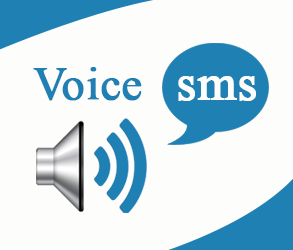The novelty of the Global System for Mobile Communications has worn off in terms of voice and Short Messaging Services (SMS), while data is taking a premium edge in the country with many subscribers adopting data’s communication.
The revenue from voice and SMSes are no longer encouraging and the GSM companies are no longer smiling to the banks as they used to do because disruptive technologies have overtaken the telecoms space.
Today, these disruptive technologies like Watsapp, Skpe,Viber, Imo,Twitter, Snapchat, instagram,Youtube,Pinterest, Facebook are generating huge revenue and driving data because subscribers have experienced these newest addition and have seen the cost effectiveness of these handles.
According to a telecommunications subscriber, Ibrahim Dansol,I don’t remember when I sent a text message. I use more of Watsapp, Skpe and Viber to pass across my message.
“I am not paying more,I use the data on my phone and most Android phones can now use a 3. 5gigabyte blackberry bundle data for as low as N1,500 for a 30 -day period. It does not make economic sense to still use your recharge credit to make voice calls or send text messages that may hang owing to network when it can be done through other channels. Now, some telecom operators are trying to upgrade their networks because data is the real user’s experience”.
Commenting during an industry forum on the role of disruptive technologies in catapulting the African Continent’s gross domestic products (GDP),Director, Public Affairs of the Nigerian Communications Commission (NCC), Mr Tony Ojobo stated that these technologies would advance,transform life, business and the global economy.
“There are 12 listed in the gallery including mobile internet,internet of things (IoT),advanced robotics, renewable and energy storage autonomous and near autonomous vehicles, while some disruptive technologies fall under the genre of Over-the Top Services,which are carried over the networks, delivering value to customers, but without any carrier service provider being involved in planning, selling, provisioning, or servicing them, thereby implying that traditional telcos cannot directly earn revenue from such services. These over- the- top services (OTT) include internet protocol(IP)telephony, live streaming and other social media applications.
“Globally, there is a continuing surge in growth, which means that the industry must be heading somewhere for a positive reason. Why would Microsoft want to put in a mind blowing sum$26.2bn in Linkedin except there is something they have seen in an organisation that may not have as much physical facilities to warrant that amount?”
Ojobo further disclosed that that was the point of vexation by traditional operators who felt that organisations without tangible investments have created new big boys while the old telecoms providers are struggling to balance their books.
“Someone call it the story of the dodo and dinosaur that went into extinction at a point. These operators don’t want to go into extinction. The challenge is that they must listen to the new drunbeat,”he said.
A telecoms expert , Amos Udunze explained that major reason that telecoms operators revenue in voice is dwindling is because of their inability to charge over wifi.
According to him, telcos. all over the world are experiencing falling revenues, because of the inability to recognize mobile number when a customer is on a Wi-Fi network.
“Currently, they are unable to charge for content shared (e.g. Videos) on popular social network services like Facebook, Twitter and WhatsApp.
“Now, telecommunication operators are finally trying to reverse the trend and reclaim some of their lost revenue by charging for usage patterns that were previously free. Though a considerable number of users are on Wi-Fi, charging on Wi-Fi is a huge problem for them since mobile number is not visible.
He added that an increasing number of people are already using internet on their mobile phones because mobile network operators are now offering value based data plans and services to offset the revenue decline.
“ Mobile data users are also increasingly willing to pay more for a better Internet experience. And ability to do Wi-Fi charging for third party content offerings is a huge opportunity for the telecoms operators.While the need to innovate by is expedient in order to enable charging without changing the user experience”.




